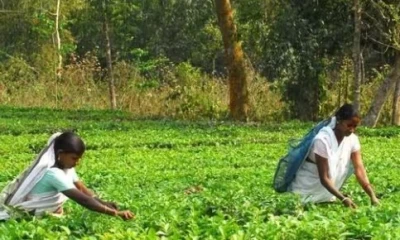With each election, the tea tribal population in Assam emerges as a pivotal force, commanding attention due to their significant influence at the ballot box.
The ruling BJP’s flagship initiative, the Direct Benefit Cash Transfer scheme, has struck a chord within the tea gardens across Assam, solidifying the party’s support base, particularly in Upper Assam.
Meanwhile, Opposition Congress finds itself grappling with dwindling electoral prospects, compounded by internal organisational rifts, potentially tilting the electoral scales in favour of the BJP.
Employing a strategic approach, the BJP has not only implemented welfare programs but has also strengthened its rapport with tea labourers through the establishment of tea organisations. These associations, aligned with the BJP, have gradually overshadowed the influence of the Congress-affiliated All Assam Chah Mazdoor Sangha or ACMS, paving the way for the rise of the Bharatiya Chah Mazdoor Sangha or BCMS.
ACMS president Pawan Singh Ghatowar stated, “While the BJP’s welfare schemes have garnered traction among the tea tribe community in Assam, their fundamental issues, such as the granting of Scheduled Tribe (ST) status, remain unaddressed.”
He stressed the imperative for the Congress, despite being in Opposition, to champion these concerns and rebuild trust among tea garden voters.
Echoing similar sentiments, the influential All Assam Tea Tribes Students Association noted that a significant portion of the tea tribe population in Assam has shifted away from the Congress.
Generations ago, Adivasi groups like the Oraons, Santhals, Mundas, Kharias, Bhumij, Gonds, and Sawras, originating from the Chotanagpur plateau, migrated to Assam to work in tea estates established during the British colonial era.
Despite their significant contributions to Assam’s tea industry, these communities, now known as tea and ex-tea garden tribes, are officially classified as Other Backward Classes (OBC) by the government. They encounter economic hardships and limited access to education.
Yearning for official recognition as Scheduled Tribes (ST) in Assam, they aspire for increased support and opportunities to improve their livelihoods.
Of the 803 registered large tea gardens in Assam, Dibrugarh leads with 177 gardens, closely followed by Tinsukia with 122 gardens, all falling within the Dibrugarh constituency.
With a formidable electoral strength of nearly 40 lakhs which influence election results in 26 constituencies and five parliamentary seats, the tea voters, predominantly concentrated in Upper Assam where five seats are up for grabs on April 19, hold the key to determining the electoral fate of the candidates.
As the electoral battle heats up, all eyes are on the tea gardens of Assam, where the outcome of the polls could be decisively shaped by the voting preferences of this influential demographic.

















